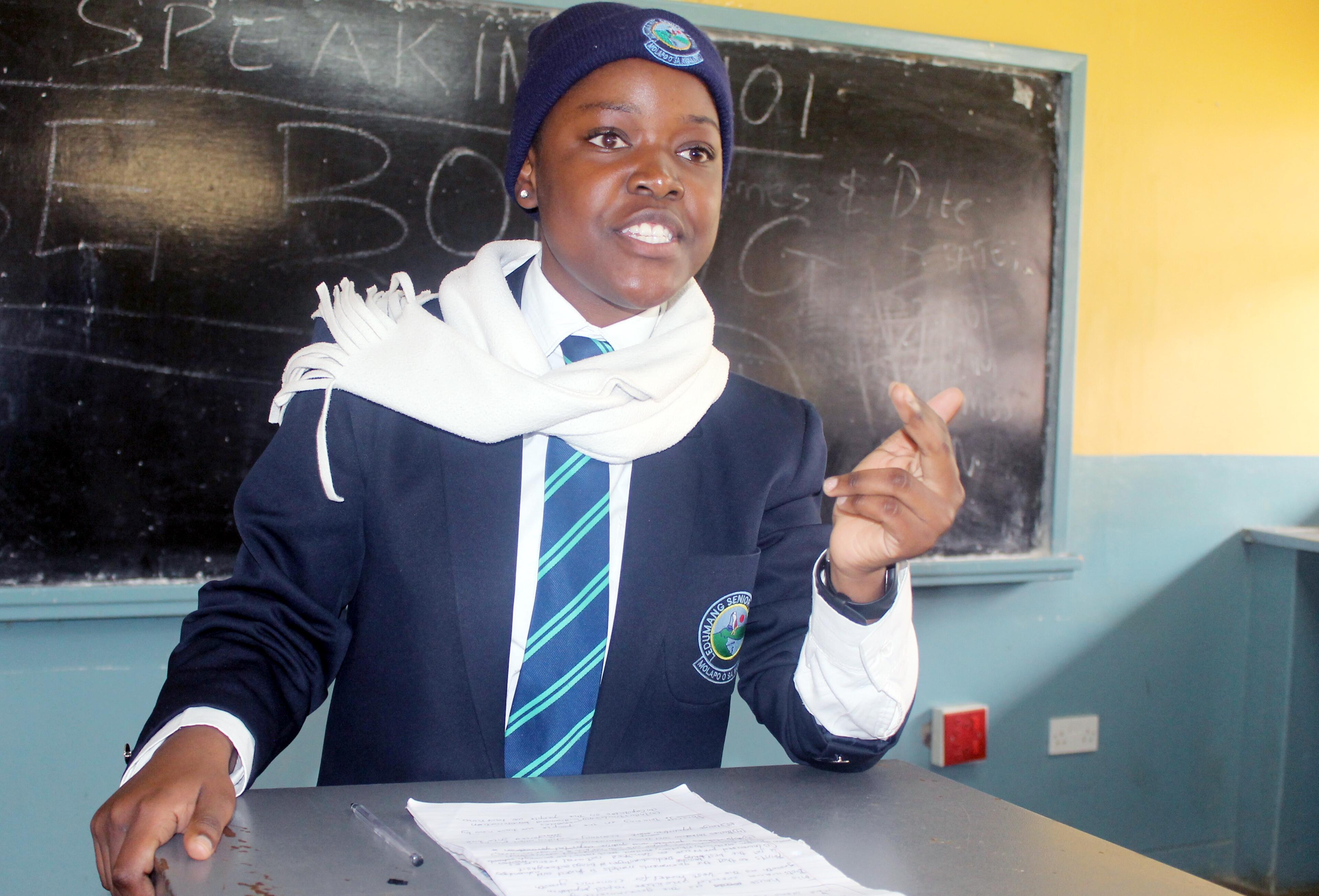GABORONE, Botswana—Unmet need for family planning not only challenges the ability of women and girls to control their bodies and their future, but also comes as a great cost to the government. This was said by Botswana’s Permanent Secretary for the Ministry of Health and Wellness, Ruth Maphorisa, at the launch of UNFPA’s 2019 State of World Population (SWOP) report on 5 June.
When compared to other Upper Middle Income Countries (UMICs), our maternal mortality ratio of 143 deaths per 100,000 live births is double the average for UMICs.
“While we have set the pace and made strides in some areas, we have regressed in other important areas. When compared to other Upper Middle Income Countries (UMICs), our maternal mortality ratio of 143 deaths per 100,000 live births is double the average for UMICs,” she said.

Country Director for Botswana and Eswatini, with Ruth Maphorisa,
Permanent Secretary for the Ministry of Health and Wellness, and
Mareledi Segotso, UNFPA Botswana Assistant Representative,
launching the SWOP report. © UNFPA Botswana
The consequences of unmet need for family planning include high teenage pregnancy rates in the country.
“The 2018 Botswana Demographic Dividend Study revealed that if Botswana reduced the number of unplanned pregnancies, the total fertility rate would drop from 3.1 births per woman to 2.0 births, leading to a cumulative boost in living standards of 19 per cent by 2050.”
For Botswana to fulfill the Cairo promise and secure prosperity for all, partners – including civil society, the private sector and the people of Botswana – need to join forces with the government.
The SWOP report, themed Unfinished business: the pursuit of rights and choices for all, celebrates the great achievements in sexual and reproductive health and rights made in the last 50 years, while challenging the world to address barriers and challenges that still remain.
The year 2019 marks 25 years since the revolutionary 1994 International Conference on Population and Development (ICDP) in Cairo, Egypt. The ICPD25 anniversary is therefore is an opportunity to celebrate achievements made in implementing the Cairo promise, and recommit to fulfilling the unfinished business of the ICPD.
What’s changed since ICPD in 1994?

Thatayontlhe Molefe discuss what's changed since the ICPD in 1994.
© UNFPA Botswana
While there has been progress towards universal access to sexual and reproductive health and rights, more needs to be done for those left behind, especially key populations, said Thatayontlhe Molefe, Executive Director at Men for Health and Gender Justice.
He was speaking as a panelist for a What’s changed? conversation held with members of civil society and a young person, as community drivers of the ICPD promise. This served as a reminder of the ICPD unfinished business, while calling for greater participation and support to accelerate action.
“Botswana’s policy environment allows for young people to access services, particularly youth-friendly health services,” said Thatayaone Gabositwe, Country Programme Director for Botswana at SRHR Africa Trust. He expressed concern about the implementation of YFHS as small, under-resourced corners in very few public facilities. This implementation approach keeps health services inaccessible and unfriendly to many young people, he cautioned.
Botswana’s policy environment allows for young people to access services, particularly youth-friendly health services - but implementation approach keeps health services inaccessible and unfriendly.
Senzeni Makhwaje, Programme Manager at Botswana Family Welfare Association, spoke on innovations in sexual and reproductive health service delivery, where civil society efforts complement government efforts by providing ARVs and commodities.
Botho Mahlunge, 19, a youth volunteer at SRHR Africa Trust Botswana, emphasized the importance of the provision of comprehensive sexuality education (CSE) in schools. She grew up in Lobatse, a town 75 km from the capital of Gaborone, and had no access to CSE. She voiced concern for young people in rural areas, who are likely to be even more disadvantaged than her.



